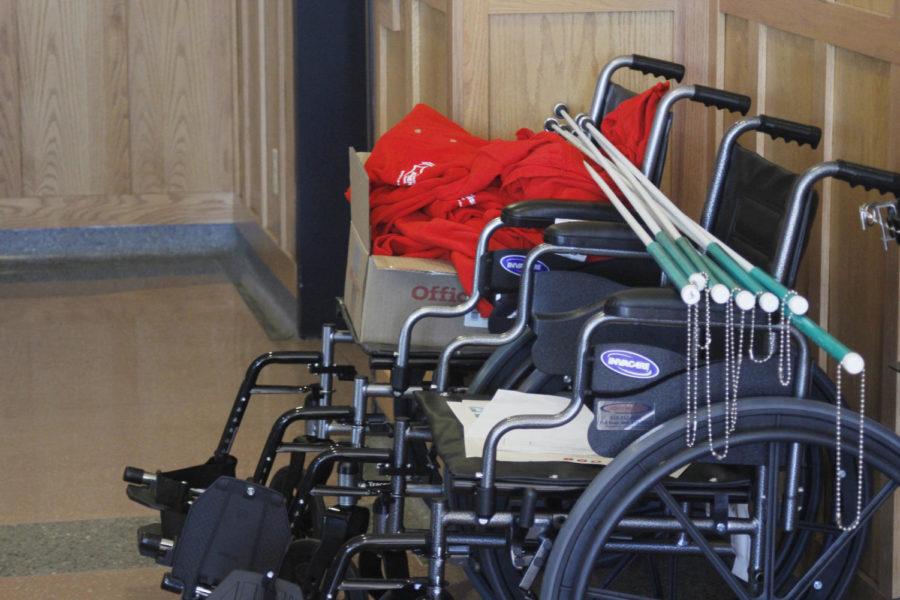Use this term, not that term: navigating language in disabilities
A line of wheelchairs and canes sit ready for use in the UDCC as part of the ‘Step Into My World’ event put on by the Alliance for Disability Awareness Club and the Student Disability Resource Center. The event was part of Disability Awareness week.
November 1, 2017
Words have more power than we think.
According to Megan Johnson, a sign language interpreter at Iowa State, language and words are the single most important factor when making someone feel welcome or unwelcome.
Johnson recently gave a presentation titled, “Words Mean Things: Navigating Language When Working With Students With Disabilities” at this year’s Disability Summit last month.
“Most often what I see is most people don’t want to be jerks, they just set out on their everyday life and then are faced with something they have never seen but don’t know how to go about it,” Johnson said.
With students on campus having a wide range of disabilities, both visible and invisible, words can impact people in different ways.
For instance, the use of the phrase “hearing impaired” could be considered offensive as opposed to “deaf” or “hard of hearing.” When someone uses a phrase with a non-derogatory word or grouping of people to replace a derogatory word, it changes the entire meaning.
Another issue Johnson discussed was that a lot of the time people do not know what to say when it comes to interacting with a student with a disability, and instead avoid the situation entirely, which can make things more uncomfortable.
“I think the whole thing I wanted people to take away from that presentation is you should not just tiptoe around the subject- you should just ask,” Johnson said. “They are humans just like everyone else and want to be interacted with like everybody else.”
Johnson also discussed looking at a person from a medical standpoint rather than a social standpoint can be dehumanizing. Instead of focusing on something that is physically different from one person to another, the main focus should be creating an inclusive environment.
“We have some really great students who are willing to talk about their disabilities or answer questions,” Johnson said. “What people need to realize is a student with a disability is a student here at Iowa State just like everyone else. They worry about classes, friends, financial aid just like everyone else.”
When people know better, they do better. It only takes one person to make a difference when it comes to educating others on what is appropriate to say and what could be considered offensive- it all comes down to being thoughtful with a choice of words.
“I remember when I was growing up I was replacing a derogatory word in place of a word that had nothing to do with its meaning. I remember the day one of my friends explained to me what I was doing and how hurtful that could be to others,” Johnson said. “I never meant it as insulting- I had no idea what I was saying was hurtful. l then weeded it out of my vocabulary and never said it again.”
















